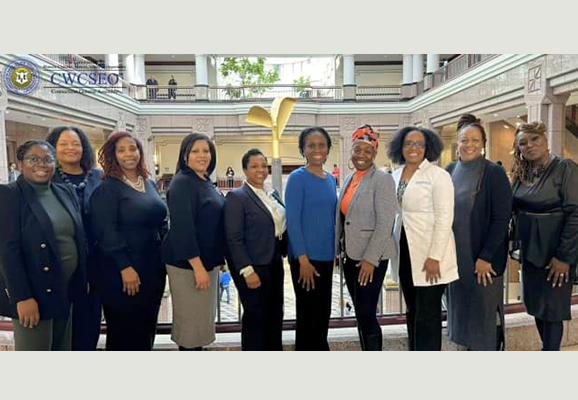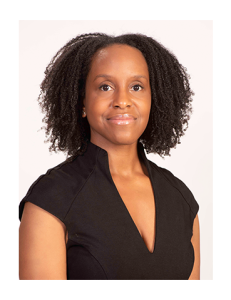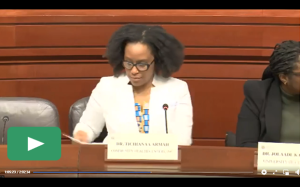
March 6, 2024
The rates of suicide among Black women and children are rising. Yet, “All of the answers do not lie in a medication for a chemical in the brain,” said psychiatrist Tichianaa Armah, MD.
Speaking to a diverse audience of community members and legislators at the Connecticut Legislative Office Building on February 29, 2024, Dr. Armah, Chief Psychiatry Officer at Community Health Center, Inc. and a senior faculty member in the Weitzman Institute, had a major message to share about the growing tragedy of suicide among Black Americans.
She also provided much-needed hope with a dose of optimism in the form of concrete suggestions for taking care of mental health in the Black community.
Suicide, Dr. Armah noted, is now the second leading cause of death among Black children ages 10-14. Black women ages 18-65 have the highest suicide risks among all women. Perhaps shockingly Black children ages 5-12 have a rate of suicide now double that of their white peers.
“If we don’t talk about it,” she said, “we keep repeating history.”
The reasons are “multi-factorial,” Dr. Armah explained, and include the Black community’s disproportionate exposure to traumatic experiences, racism, insidious daily discrimination, lack of access to healthful environments, and more.
Although the data and anecdotal evidence are sobering, Dr. Armah said there are things people can do to help others and help themselves. Among her recommendations: Rest & Reflect, Food for Mood, Social Support, and Advocacy.
Highlighting the power of advocacy as a potent intervention for Black youth, she emphasized that “Advocacy, protest, empowerment, and cultural affirmation” are associated with dramatically lower risk of suicide in young people. The impact of advocacy on a young person’s mental health is “dose response dependent”—meaning the more youth engage in these activities, the more they benefit.
Watch and listen to entire conversation with Dr. Armah and her fellow panelists: “Black Women’s Health: Mental and Maternal Health” hosted by the Connecticut Commission on Women, Children, Seniors, Equity & Opportunity.

Tichianaa Armah, MD, Chief Psychiatry Officer, VP of Behavioral Health, Community Health Center, Inc.

